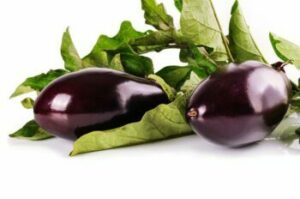
How to say eggplant in Spanish?
¿Cómo se dice eggplant en español? Eggplant in Spanish translation: berenjena.
The Spanish word for eggplant is “berenjena.” This vegetable is part of the Solanaceae family and is native to Asia. It is widely cultivated and consumed in many countries around the world, including Spain and other Spanish-speaking countries.
In Spanish cuisine, eggplant is used in a variety of dishes, such as “berenjenas fritas” (fried eggplant), “escalivada” (roasted eggplant with peppers and onions), and “tortilla de berenjena” (eggplant omelet). It is also a popular ingredient in Mediterranean and Middle Eastern cuisines.
The word “berenjena” comes from the Arabic word “al-badhinjan,” which means “the eggplant.” This reflects the fact that eggplant was introduced to Spain and other parts of Europe during the Islamic Golden Age, when Arab traders and scholars had significant influence on the region.
In addition to its culinary uses, eggplant also has some medicinal properties. It is rich in fiber, vitamins, and minerals, and has been used in traditional medicine to treat various conditions, such as high blood pressure, diabetes, and digestive problems.
Overall, the word “berenjena” is an important term in the Spanish language, representing a versatile and widely used vegetable that has cultural, culinary, and medicinal significance in many Spanish-speaking countries.
Sentences with the word eggplant in Spanish
| ¿Te gusta comer berenjena? | – | Do you like to eat eggplant? |
| ¿Cómo te gusta más la berenjena? | – | How do you like the eggplant better? |
| No me gustaría ni probar la berenjena. | – | I wouldn’t even want to try the eggplant. |
| ¡A mi me encanta la berenjena! | – | I love eggplant! |
| ¡Si pruebas mi berenjena te gustará! | – | If you try my eggplant you will like it! |
| La berenjena frita es muy rica. | – | The fried eggplant is very tasty. |
| Yo prefiero la berenjena en salsa. | – | I prefer the eggplant in sauce. |
| Antes de cocinar la berenjena ponla en remojo con vinagre. | – | Before cooking the eggplant, soak it in vinegar. |
| Antes de freír la berenjena mejor la empanizas. | – | Before frying the eggplant, it is better to bread it. |
| ¡Hay muchas recetas con berenjena! | – | There are many recipes with eggplant! |
| A mis hijos no les gusta la berenjena. | – | My kids don’t like eggplant. |
| ¡Mis hijos disfrutan la berenjena! | – | My kids enjoy the eggplant! |
| Mis padres no me enseñaron a comer berenjena. | – | My parents didn’t teach me to eat eggplant. |
| Sembrar berenjena es fácil. | – | Planting eggplant is easy. |
| La berenjena tiene un período corto de recolección. | – | The eggplant has a short harvest period. |
| ¡Me encanta recoger berenjenas! | – | I love picking eggplants! |
| Las berenjenas tienen distintos tamaños. | – | Eggplants have different sizes. |
| También las berenjenas son de diversos colores. | – | Eggplants are also of different colors. |
| Algunas berenjenas pican más que otras. | – | Some eggplants are hotter than others. |
| ¿Prefiere la berenjena con cáscara? | – | Do you prefer eggplant with shell? |
| Me gustaría que picaras la berenjena a la juliana. | – | I’d like you to chop the aubergine julienne. |
| ¿Cuándo sembraremos berenjena? | – | When will we plant eggplant? |
| Prefiero la berenjena compuesta con carne. | – | I prefer the eggplant compound with meat. |
| He bordado una berenjena en el pañuelo. | – | I have embroidered an aubergine on the handkerchief. |
| Dibujé una berenjena en la computadora. | – | I drew an eggplant on the computer. |
| Prefiero la berenjena verde que la colorada. | – | I prefer the green eggplant to the red one. |
| ¿Para qué cocinarás berenjena si hay habichuela? | – | Why will you cook eggplant if there are beans? |
| No cocino berenjena a menos que tenga vinagre. | – | I don’t cook eggplant unless it has vinegar. |
| Este año habrá buena cosecha de berenjenas. | – | This year there will be a good harvest of aubergines. |
| ¡No ví una berenjena en el mercado! | – | I didn’t see an eggplant in the market! |